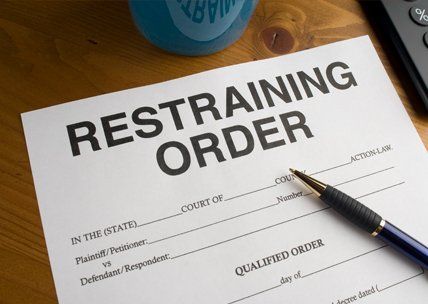Violation of Domestic Violence – Criminal
The Law Firm of Steven W. Bowden - Pensacola, FL
In Florida, a violation of a domestic violence injunction, dating violence injunction, sexual violence injunction, or repeat violence injunction is classified as a first degree misdemeanor, with penalties of up to 1 year in jail or 12 months of probation and a $1000 fine.
In some cases, a person can be charged with the felony offense of “Aggravated Stalking” if there are multiple violations of the injunction and the violations are calculated to harass or threaten. If you have been accused of violating a domestic violence injunction, call us today for a FREE consultation.
Know your Rights
Repeat Violence Injunctions
Repeat Violence Injunctions
What happens when multiple incidents occur?
A victim of repeat violence may obtain a repeat violence injunction. Repeat violence means two incidents of violence or stalking committed by the respondent, one of which must have been within 6 months of the filing of the petition, which are directed against the petitioner or the petitioner’s immediate family member.
Ways to Violate an Injunction
Ways to Violate an Injunction
There are innumerable ways to violate a Florida injunction, and the best source to avoid a violation is the court order itself. Depending on the specifics of the injunction, a person may be charged for any of the following:
- Refusing to leave or vacate the dwelling or home that the parties share;
- Going to, or being within 500 feet of, the petitioner’s residence, school, place of employment, or a specified place frequented regularly by the petitioner and any named family or household member;
- Committing an act of domestic violence against the petitioner;
- Committing any other violation of the injunction through an intentional unlawful threat, word, or act to do violence to the petitioner;
- Telephoning, contacting, or otherwise communicating with the petitioner directly or indirectly, unless the injunction specifically allows indirect contact through a third party;
- Knowingly and intentionally coming within 100 feet of the petitioner’s motor vehicle, whether or not that vehicle is occupied;
- Defacing or destroying the petitioner’s personal property, including the petitioner’s motor vehicle; or
- Refusing to surrender firearms or ammunition if ordered to do so by the court.
Defenses to Violation of Injunction
Defenses to Violation of Injunction
There are multiple defenses available to contest a Florida injunction violation charge. The more common defenses include:
Lack of Intent to Violate
In order to constitute a violation of an injunction in Florida, the prosecution must prove that the defendant willfully violated the injunction. To be “willful,” the defendant’s actions in violating the court’s order (as contained in the injunction) must be done “knowingly, intentionally, and purposely.” Often, the defendant was not aware of the full scope of the injunction’s prohibitions, or believed that his or her actions were in compliance with the injunction. If the violation was not willful, this can serve as a complete defense to the charge.
Lack of Notice of Injunction
The notice of an injunction is an essential element of the charge of violating its provisions. Cordova v. State, 675 So. 2d 632, 634 (Fla. Dist. Ct. App. 3d Dist. 1996); Thus, a conviction cannot be sustained and a Motion for Judgment of Acquittal must be granted where the State fails to prove that the defendant was served with the injunction or had some other notice. See Robinson v. State, 840 So. 2d 1138, 1139 (Fla. 1st DCA 2003) (reversing trial court’s denial of defendant’s Motion for Judgment of Acquittal where the State failed to establish that the accused knew the permanent injunction had been entered against him, either through proof that the accused had been served with the permanent injunction, or through proof that the accused had some other notice);
SCHEDULE YOUR
FREE
CONSULTATION
Just fill out the form below and we will get back to you as soon as possible!

